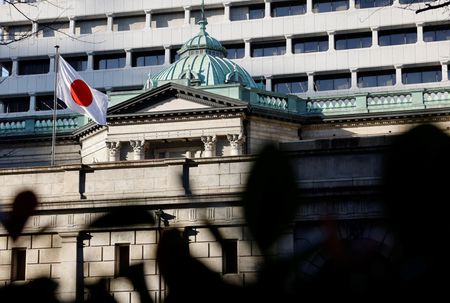By Marc Jones
LONDON (Reuters) – Moody’s cut the credit rating of the Maldives on Wednesday and warned another was possible in the coming months due to the growing danger of a full-blown debt crisis and what would be the first ever default on an Islamic sovereign bond.
“The decision to downgrade is driven by our assessment that default risks have risen materially,” Moody’s said as it lowered the country’s rating to Caa2 and immediately placed it “on review” for a follow-up downgrade.
That process usually takes up to three months.
Moody’s warned the Maldives’ “fragile external liquidity position will likely worsen further without near term financing”, especially with “significant external debt obligations coming due within the next 12-18 months.”
The Maldives’ 2026 Islamic Bond, or sukuk, is its only listed international fixed income instrument.
It shrugged off Wednesday’s downgrade, but has fallen sharply in recent months to around 70 cents in the dollar from almost 95 cents in June.
If the archipelago nation were to default on the bond, it would be the first sovereign to default on a key form of sharia-compliant debt that has also been issued by most Gulf nations as well as the likes of Nigeria, Malaysia and also Britain.
Concerns about a possible Maldives debt crisis come after a turbulent few years.
The COVID-19 pandemic hammered its vital tourism industry and though visitor numbers have now fully rebounded, the costs of repaying loans taken from its big bilateral creditors, India and China, risk draining its reserve dry.
There has been big political change too.
Back in April, President Mohamed Muizzu’s party won a landslide victory in parliamentary elections that has shifted the Indian Ocean island nation closer to China and away from traditional partner India, observers say.
There was then widespread confusion in August when the Bank of Maldives – the country’s state-owned commercial bank – announced a range of suspensions and limits to foreign currency card transactions, before reversing the move hours later following a public backlash.
“The rating review will focus on assessing whether the sovereign is able to secure external financing – mainly from bilateral sources – to shore up foreign exchange reserves,” Moody’s said in its explanatory statement.
The next payment on the sukuk is due in October and is around $25 million.
Moody’s estimates the nation’s foreign exchange reserves, which in its definition exclude gold and IMF Special Drawing Rights, amounted to $437 million at the end of August, sufficient to cover only around 1-1/2 months of imports.
It also warned that reserves remain “significantly below” the government’s external debt service needs of around $600 million to $700 million in 2025 and over a billion dollars in 2026.
(Reporting By Marc Jones; Editing by Emelia Sithole-Matarise and Jonathan Oatis)











